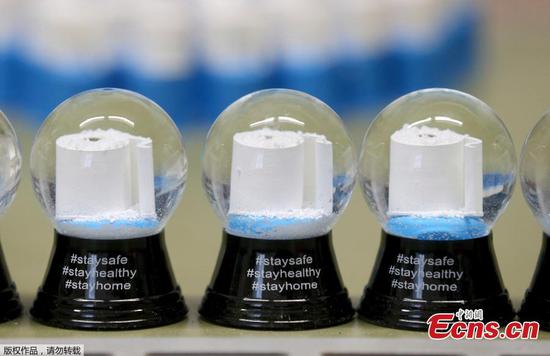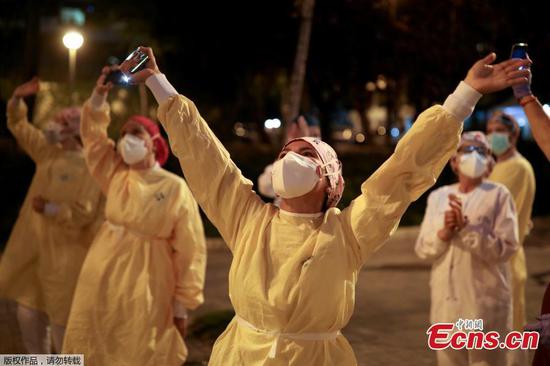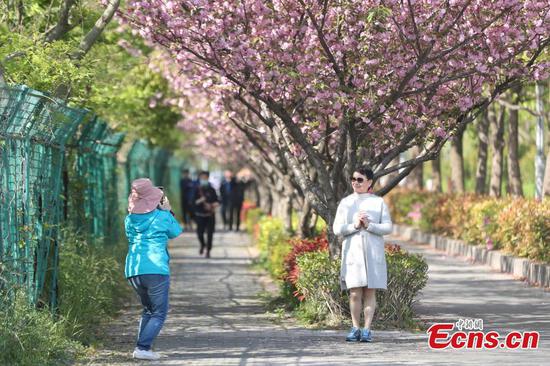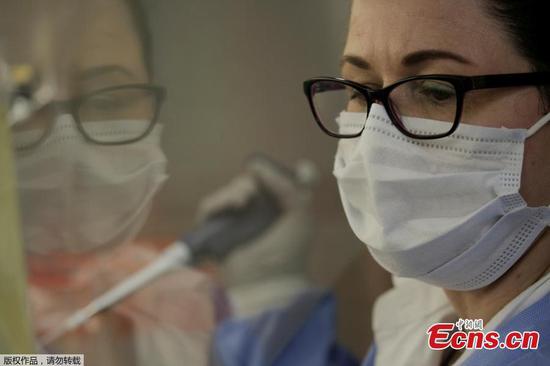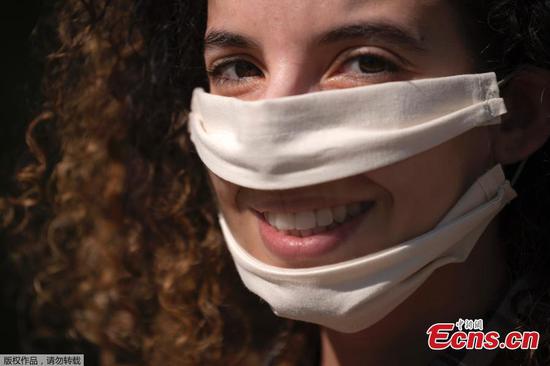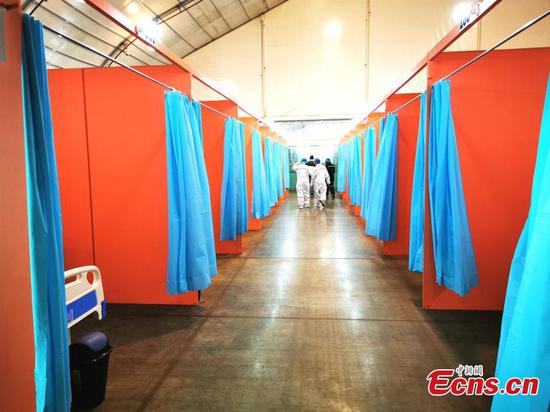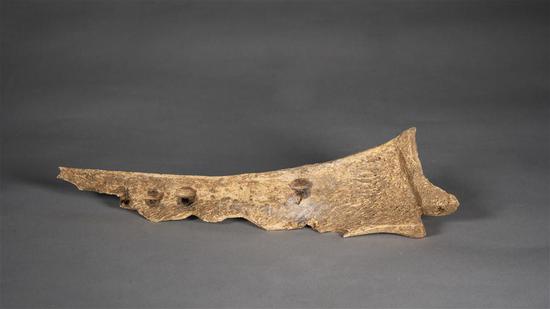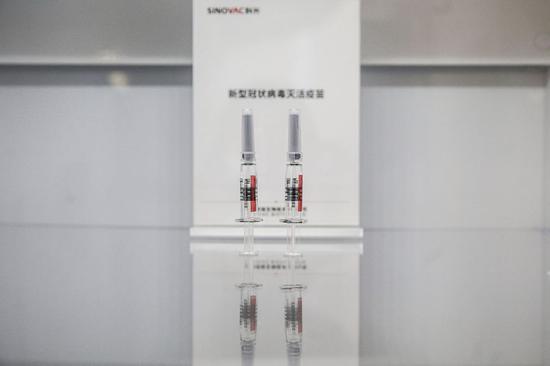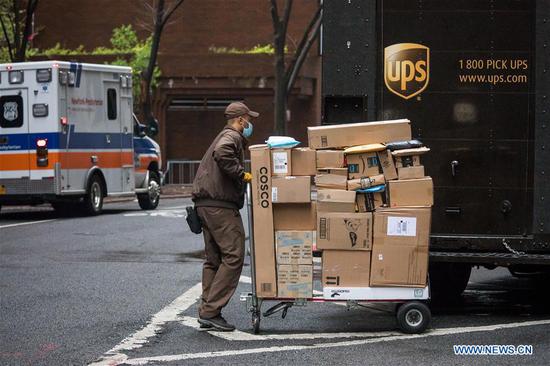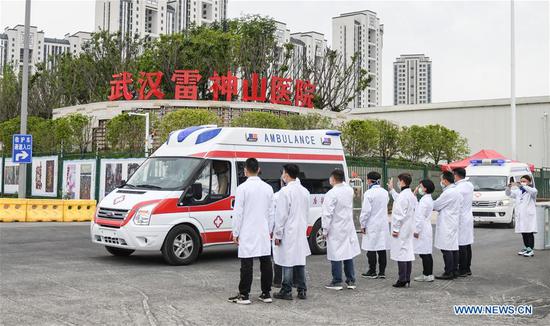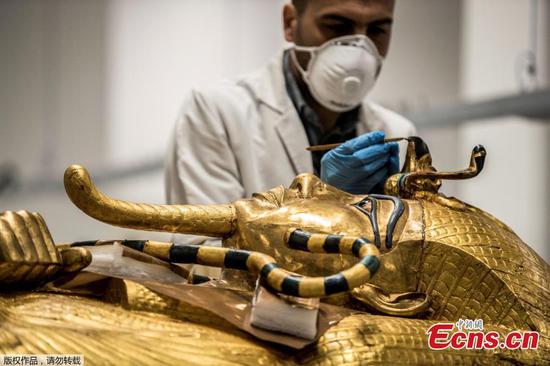
Doctors test novel coronavirus samples with BGI's kits at a lab in Wuhan, Hubei province. (Photo by Zhou Chao/For China Daily)
Chinese scientists and overseas health authorities have cautioned against using antibody testing as the sole method to diagnose patients infected with COVID-19, as it cannot confirm the presence of the virus and is not helpful in identifying early infection.
In recent weeks, many institutions and companies have made headlines with inventions of a "game-changing" antibody test that can provide a diagnosis within minutes, using blood drawn from a vein or a finger.
Many countries, including the United States, United Kingdom and Germany, have reported increased imports and use of such rapid test kits.
In late February, China approved its first antibody testing, with the method added by the National Health Commission to the latest guidelines on the diagnosis and treatment of COVID-19.
However, China has advised against using antibody tests as the primary diagnostic tool. The World Health Organization, U.S. Food and Drug Administration and other health authorities have also discouraged the use of antibody testing as the sole basis to diagnose or exclude coronavirus infection, or to inform infection status.
The antibody test, also known as a serology test, looks for signs of an immune response, such as the production of immunoglobulin M or G, or IgM and IgG, according to the U.S. Centers for Disease Control and Prevention.
IgM is the first antibody produced by the body to fight a new infection, while IgG is the most common antibody in the blood that plays a wide range of roles, from neutralizing toxins to regulating immune response.
However, a person needs to be infected for several days before the body can produce the necessary antibodies for COVID-19 diagnosis. For IgM, this takes about three to five days after the onset of symptoms, while IgG typically occurs two weeks after the initial infection, and peaks in about a month.
As a result, antibody testing cannot identify early infections, according to the U.S. Centers for Disease Control and Prevention.
Such testing also cannot confirm the presence of the virus in the body. It can only detect previous exposure. As a result, antibody testing may be more useful for epidemiological research, such as determining what percentage of the population has ever been infected.









